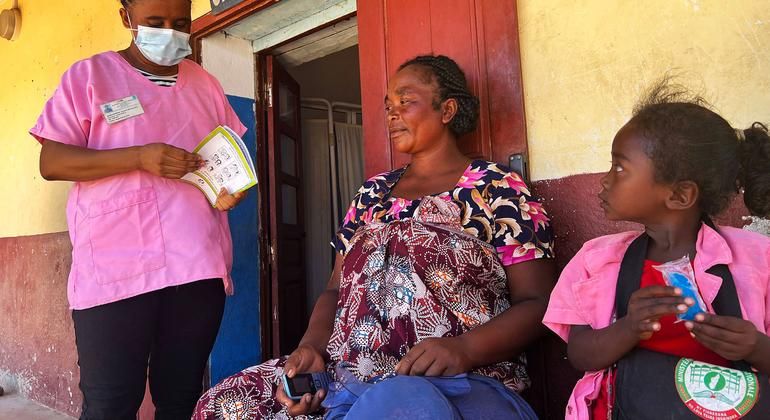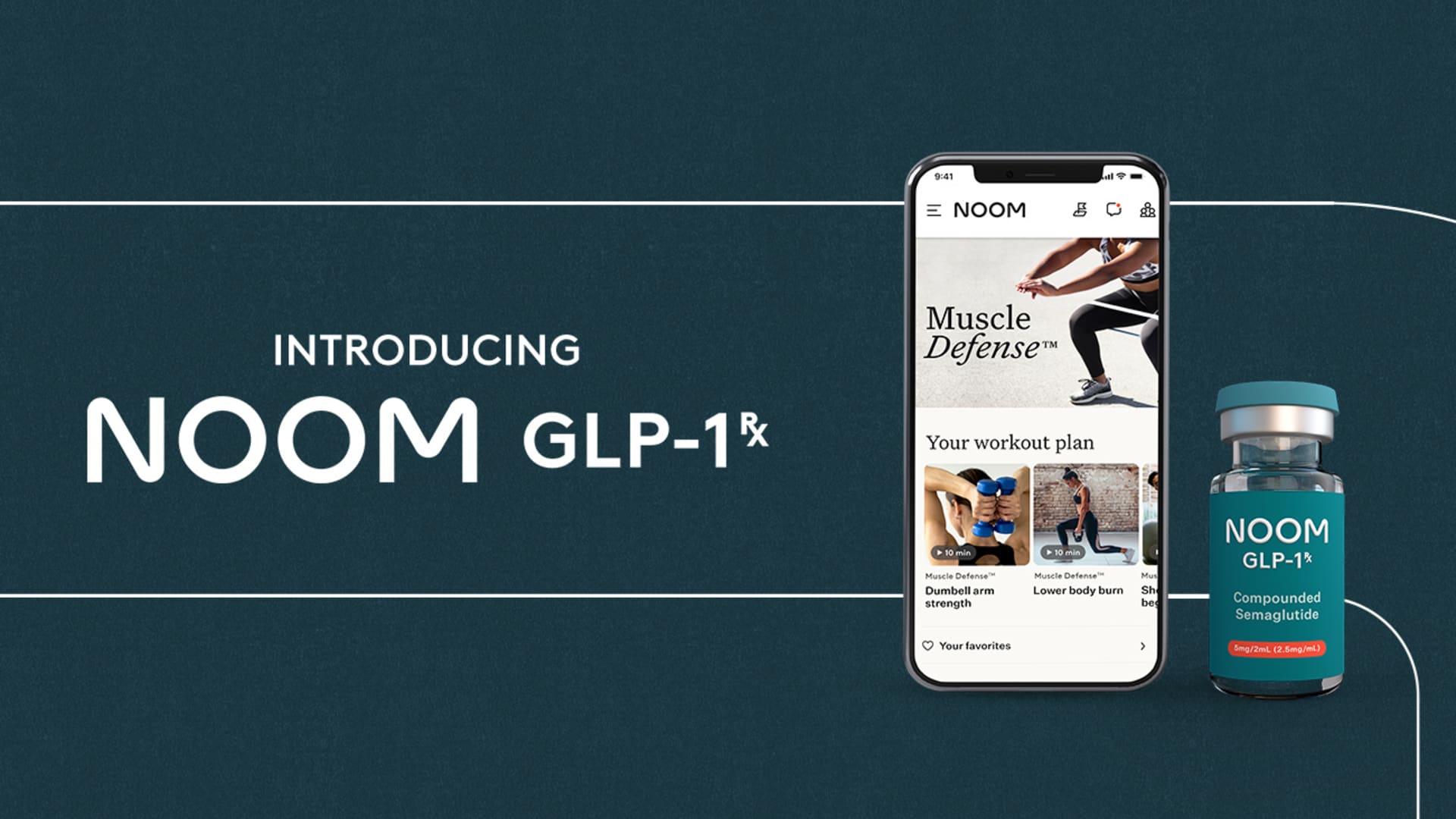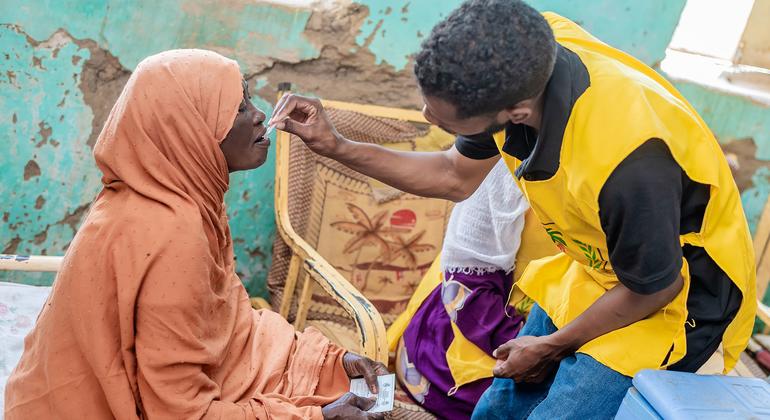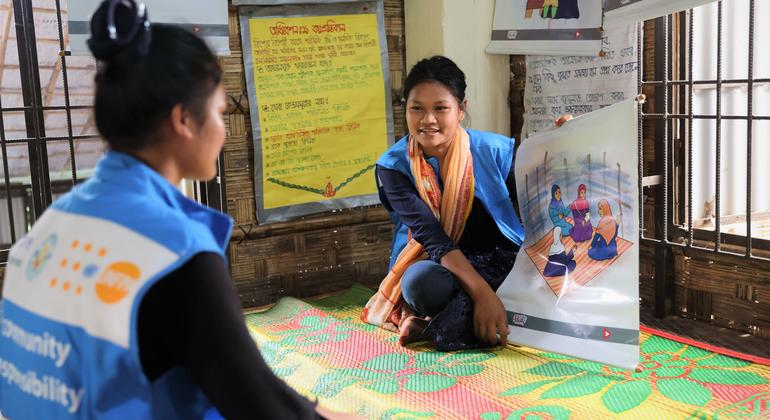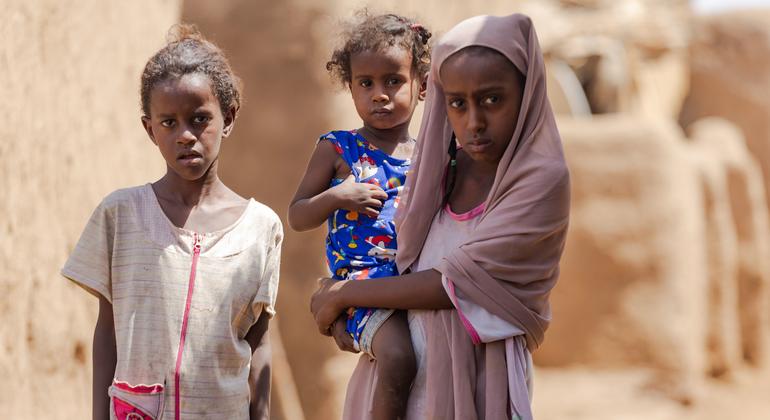The predominantly rural Androy region has been beset by a series of humanitarian crises that have affected the most vulnerable people, including expectant mothers; However, the provision of simple and affordable maternity kits is encouraging more women to access a variety of services. This will help keep them and their babies healthy.
On the eve of International Midwifery Day, celebrated annually on May 5, Jeanne Bernadine Rasoanirina, midwife from Behara, in Androy, spoke with UN News's Daniel Dickinson on the challenges of reaching the poorest women.
“This is a very poor rural area, and many women feel too embarrassed to come to the health center to deliver their babies because they don't even have money for transportation or to buy clean clothes to wrap their newborn. They don't want other people to know that they are poor.
Expectant mothers who come here receive all the support they need to give birth, and it's free, thanks to the government and UN agencies, including [the UN reproductive health agency] UNFPA.[The UN Children’s Fund] UNICEF and the World Food Program (WFP) provide important nutritional advice and support, which complements our work and is essential to keeping mothers and their children healthy.
Even though I've been in this job for 19 years, it still makes me very sad when women come in who don't have the means to take care of themselves. They may be wearing dirty clothes, which is a sign of poverty, but also a lack of knowledge or respect for cleanliness.
In the last week, I have given birth to three babies and in the last month I have attended over 330 prenatal and postnatal consultations, so there is definitely a demand for services.

Jeanne Bernadine Rasoanirina is sitting at her desk with the newly delivered maternity kits.
Maternity kits
I believe that more women will be encouraged to go to the health center, since yesterday we received the delivery of 240 maternity kits. [supported by UNFPA] for the first time in more than a year, which will last about three months.
The kits include everything a mother needs to give birth: gloves, gauze, umbilical cord clip and a delivery syringe, plus cloth wraps and clothing to dress the baby. They will eliminate the shame that mothers feel.
It's frustrating that we haven't had a consistent supply as this small item can make a big difference. It means that more women will come to our health centre, which is a safer place to give birth. In 2023, we only had successful births; there were no deaths. We don't know how many women gave birth at home or how many children and mothers died as a result. There is definitely a risk of death if a woman does not come here to give birth to her baby.
Polygamy
There are still many cultural barriers that prevent safe childbirth in southern Madagascar. Children are considered a sign of wealth, even if families do not have the means to properly care for them, so it is common to have many children, sometimes up to 10.
Polygamy is also practiced, and some men have up to five wives and want to have children with all of them. Here we provide information and offer training on these topics, but we must always be sensitive to the local culture.”

